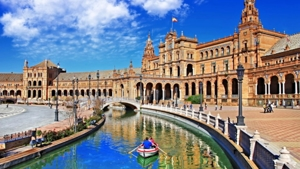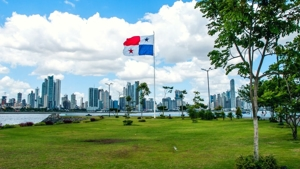Retire In Thailand
Retire In Thailand
Retiring in Thailand has many benefits such as a low cost of living and various visa and residency options.
Thailand offers the retiree a great opportunity to change their lifestyle drastically. Retiring in Thailand, you could aim to have a more active lifestyle. Incorporate swimming in the beautiful turquoise waters or going on regular walks on the beach to your daily life, you could also enjoy weekly hikes in Thailand’s jungles.
Cost Of Living In Thailand
Several destinations in Thailand are not the bargain destinations they used to be. However, you can still enjoy aspects of first-class living at economy-class prices in this breath-taking country.
Hua Hin
Although Hua Hin isn’t the cheapest destination in Southeast Asia, the cost of living is reasonable by Western standards. The infrastructure is good, health care is modern and affordable, and the overall standard of living is excellent.
A couple could live here with a budget of about US$1,500 a month.
Bangkok
Your first impressions of Bangkok will likely be that this is a huge, sprawling city with quite a bit of tourist attractions and a lot of bars. If you stick around a while, though, your perception of Bangkok will change.
One thing that any retiree can appreciate is the low cost of living in this city.
Relatively cheap rent, bargain street food, and inexpensive transportation add up to an overall very affordable cost of living. If you don’t mind a simple lifestyle, you can get by on a budget of less than US$1,000 per month. If your nest egg stretches to US$3,000 per month, you could live like royalty in this city.
Chiang Mai
This city has been incredibly popular with expats for decades. It’s located in a mountainous northern region of Thailand.
Retiring in Chiang Mai means retirees can enjoy a more temperate climate than in other part of Thailand. This city is historically rich and has cultural differences to southern and central Thailand.
Popularity among expats and tourists means higher price tags. Keeping that in mind, a couple could retire in Chiang Mai with a monthly budget of about US$2,000.
Chiang Rai
Chiang Mai has a population of fewer than 100,000 offering an intimacy that cannot be found in a large city. There are internationally accredited hospitals here, as well as some large shopping complexes just outside the city center, but a small-town ambiance prevails.
This city is in a natural setting. Thick, cool forests, majestic waterfalls, hot springs, and some of the most diverse hill-tribe villages in the world are located just a short distance outside the city.
Interestingly, most expats move to Chiang Rai after living in Chiang Mai. Here they find cleaner air, lighter traffic, friendlier population. Further, unlike better-known Chiang Mai, Chiang Rai is not overrun by tourists and expats meaning prices are a lot more budget friendly.
A couple could retire in Chiang Mai and live comfortably with of monthly budget of about US$1,000.
Pai
Pai is a town located in northern Thailand in the Mae Hong Soon Province. This is a very small town so if you’re not keen on integrating into a small community, Pai may not be the place for you. However, if you are looking to switch things up in retirement and create close friendships with locals and enjoy a small-town feel, then Pai is great place to look into. Plus, you don’t need to learn Thai. Pai is popular enough with foreigners for locals to have picked up enough English.
A couple could live in Pai with a monthly budget of about US$800.
Phuket
Last, but not least, we have Thailand’s fun and famous beach city. There are few parts of the world that offer retirees more reasons to stay than Phuket. There’s something here for nearly everybody. Phuket has something for nearly every budget, too. More than 100,000 foreign residents have chosen to make a life here.
A couple could choose to retire in Phuket, Thailand on a monthly budget of about US$1,200.
Real Estate In Thailand
If you are looking to lease or purchase real estate in Thailand, there are some things you should consider…
1.
Distance
Thailand is far from North America. The majority of flights have at least one stop, and it will take you more than 18 hours to cross the Pacific. If you plan on still living in the States and traveling to see your property, it can be troublesome.
2.
Politics
Politics is the wild card when buying property in Bangkok.
Whether Thailand is ruled by an unelected military junta or a democratically elected government, large protests have resulted in the closing of airports, traffic disruption, and martial law in the past. However, it’s important to note that civil unrest does not affect every part of the country as a whole. Day-by-day life around the country continues much as it always does, regardless of what may be happening. Avoiding large gatherings of protestors is the easiest way to stay out of trouble.
3.
Leasing Property
Foreigners can apply for a 30-year renewable lease at the Land Department with an option to renew in 30-year periods. However, these leases cannot be registered and sale of the property by the current owner who signed the lease could nullify the lease.
4.
Ownership restrictions
It is important to know the ownership restrictions and requirements before getting involved in any Thai property purchase.
In Thailand, foreigners cannot own land but can hold freehold title to construction, specifically to condominium units. For example, as a foreigner you can own 49% of a condominium building.
Expats considering Thai real estate and a home in Thailand usually fall into two main categories. First are foreigners who have relocated permanently to the country. The second group are those who live part-time in Thailand and commute to employment in other parts of Asia, such as Hong Kong.
Whether you are interested in renting or buying, it also makes sense to get advice from an attorney or another expert in Thai real estate. There are a number of possible arrangements for foreigners who want to purchase real estate, so it pays to find someone who can help you navigate any legal complexities or tax issues before you make a purchase.
Move To Thailand
There are many reasons for a move to Thailand. Among the main reasons people choose to relocate to Thailand are the warm climate, beautiful beaches, and stunning scenery. The safety and mixture of Thailand’s modern infrastructure surrounded with ancient culture can prove alluring for foreigners who seek a Zen-like vibe where they can earn money, live inexpensively, and surround themselves with idyllic mountain or ocean views.
Entrepreneurship is another main reason for making Thailand your new home, especially since cities such as Chiang Mai are welcoming centers for entrepreneurs who want to start or expand businesses.
Applying for a visa and making sure you meet the requirements should be your first course of action. The Thai government suggests consulting with the Thai Embassy or the consulate in the States before paying for a visa application.
Although you may want to move your appliances to Thailand, it is less expensive to purchase new ones once you arrive. Your money stretches farther in Thailand. Paying thousands of dollars to ship appliances is the least-preferred option. Bring the things you absolutely cannot bring yourself to live without and let go of all the rest.
If you plan to move to Thailand with a dog or another animal, you need a health certificate for your pet in English. It must be signed by a vet from the country you are moving from. It must note the number of dogs and their species, their breed, sex, age, and identifying colors, in addition to the address of the owner.
You must certify the animal comes from a disease-free area and they are fit to travel. Your pet must also be vaccinated against Leptospirosis at least 21 days before departing for Thailand.
It is essential to obtain an import permit from the Department of Livestock Development. Documents should include a passport copy, history of vaccination, address in your country, details about your animal, date of arrival to Thailand, and the name of exit port in your country.
Health Care In Thailand
Thailand is one of the top spots in the world for medical tourism. Foreigners commonly point out that their procedure averaged 20% to 80% less than it would have cost in Northern America or Europe and the quality of care that they received was far superior.
Whether you are in need of a routine check-up, a complicated dental implant or just want to brighten your smile, the dental clinics here offer high-quality care at very low prices.
Pharmaceutical prices tend to be a fraction of what they would be in the United States for the exact same drug. If you need to take a specific medication that cannot be substituted, you may want to check first to make sure that drug is available locally.
Medical costs are extremely reasonable in Thailand and many people choose not to obtain medical insurance at all. However, with the cost of insurance so reasonable, it makes sense to have coverage.
Medical fees vary in Thailand, but you can expect to pay about US$95 for a regular visit at a private hospital. The same visit at a public hospital costs approximately US$10.
Hospital fees are strictly structured, so there’s no danger of unscrupulous doctors or pharmacists charging foreigners more than they should.
There are two hospitals of international standard in Phuket—Bangkok Phuket Hospital and Phuket International Hospital.
Infrastructure In Thailand
Thailand’s infrastructure is quite good, but varies greatly across the country. Cities are typically well-developed, but rural towns or more remote regions would be less so.
Internet technology is widely available here, very fast, and often free. As for electricity, power outages are somewhat common so prepare yourself mentally to deal with these from time to time.
Thailand communications infrastructure is impressive. There is also a long-term plan to make far-reaching improvements to the national transportation infrastructure. This nation-wide initiative will improve rail, air, road, and water transport (even reaching beyond the Kingdom’s borders to connect systems, in some cases), making travel much easier for both domestic trips and visits to neighboring countries.
Taxes In Thailand
The Revenue Department of the Thai Ministry of Finance is responsible for Thailand’s taxes, and foreigners living and working in the kingdom must be prepared to file taxes both in Thailand and in their home countries.
Residents are taxed on money earned in Thailand or remitted into the country in the year it was earned. For Americans living in Thailand, the most important fact is to be aware that you are required to pay taxes in the country. It will be your responsibility to file in both countries by the required deadlines and to take advantage of any available exemptions.
The main hurdle with respect to taxes in Thailand for expats is the fact that all tax returns must be in the Thai language. If you do not understand Thai, it may be necessary to find a Thai-speaking accountant to assist you.
Thailand’s income tax is known as the personal income tax (PIT) and is the basic tax in Thailand that foreigners will have to pay. Most expats making more than 150,000 baht can assume that their earnings will be taxed; those making less are exempt from the PIT.
Goods and services in Thailand are subject to a sales tax (or Value Added Tax, VAT) of seven percent on all purchases. You will typically find the VAT added to your bill in restaurants or stores, although some businesses may either ignore the tax or factor it into the purchase price.
For Americans in Thailand, there are a number of deductions and exemptions you can use while in the country. These are somewhat complex, and you may benefit from the assistance of a tax specialist.
The Thai embassy has the following clear statement about expat retirees and taxes in Thailand:
“Only income earned inside Thailand shall be subjected to tax during retirement.”
Therefore, you will not be obliged to pay any taxes for any income you have earned from overseas. Also, personal income taxes are not required for retirees in Thailand.
Note that you can’t work in Thailand while on a retirement visa.
Economy In Thailand
If you’re looking for a place to invest, visit on your travels, or possibly retire in, one of the best-kept secrets is quickly becoming one of the world’s hottest destinations.
The economy of Thailand has experienced incredible growth over the past four decades. With a rich past and an emerging future, consider Thailand a wise investment.
Here’s a little overview of Thailand’s economic data…
In the year 2000, 42% of the population of Thailand lived below the poverty line. In 2015 that number was down to 10%.
Thailands GDP (Gross Domestic Product) exceeded 400 billion in 2013 and 2014.
The number of students graduating from primary school and secondary school has steadily increased. The life expectancy and health care of Thai people have steadily increased over the past three decades. The amount of money that the average Thai citizen makes has increased steadily over the past four decades.
The Thai economy is experiencing rapid growth, especially through tourism and development from Western business leaders who often own second homes or retire in the country. The prospects of the country continue to rise as improved infrastructure continue to make it an appealing investment. The economic history is one of sustained growth and the economic outlook is very high. If you are looking for a place to retire, to visit in your travels, or to invest, Thailand is a safe bet with potential for incredibly high yield on your investment.
Invest In Thailand
More than a beach and retirement destination, Thailand is an export hub with an impressive stock performance.
The Foreign Direct Investment to Thailand tripled in 2015, up to 10.8 billion dollars. The year 2016 exceeded expectations as it again landed 10.3 billion for that year, cementing Thailand as the main player for exports.
Why should you consider investing in Thailand?
Thailand is a naturally rich country. It’s full of natural resources like oil, sugar, coconut, gas, and other mineral and agricultural products. Making use of these natural assets, the country has focused on exporting. Thailand is the world’s largest exporter of rice and a main producer of shrimp. Exports are so strong, they make for the 60% of the country’s GDP.
This surge in services is also boosted by a skilled workforce, especially for these and other sectors. The Thai workforce is well trained and skilled.
Thailand is strategically located in Asia. The country serves as an entryway between southeast Asia and the upper Mekong Basin.
The Prime Minister has instated a government policy promoting investment and free trade. This led to the creation of many government agencies to help investors spend their money in Thailand. Also, the regime is in total accordance with WTO regulations. This means no export conditions, no restrictions in the manufacturing sector, and no local requirements.
Thailand Visa And Residency Information
North Americans can come to Thailand visa-free for 30 days. You can extend your stay once for up to 30 days, applying for the extension before the initial 30 days elapse. Beyond this, you’ll need to apply for a visa…
To get a retirement visa in Thailand, you start with a Non-Immigrant “O” Visa. You need to show proof of funds (at least 800,000 baht in a Thai bank account or 65,000 baht of monthly income). You must be holding permanent residency in the place of application.
With the Non-Immigrant “O” Visa, you can obtain a one-year retirement visa extension. You must be at least 50, provide proof that you meet the financial requirements, your original Thai bank book and letter from your Thai bank, plus a departure card.
FAQs About Retiring In France
1. How much money do I need to retire in France?
The cost of living in France can be much lower than you expect. We don’t mean that France is a “budget” destination (although there are certainly some very attractive real estate bargains here), but your cost of living could be brought down significantly depending on where and how you live.
Your lifestyle influences greatly on your monthly budget. For example, a Coca-Cola at Champs-Élysée can cost more than lunch for two at a nice bistro in a far less recognizable corner of this city. Paris is expensive, and the Marais is one of its most expensive neighborhoods. But for access to the heart of Paris, there is no better location. The cost of living for this prime location amounts to about 2,860 euros per month.
The Marais district in the center of Paris has one of the highest costs of living in France. The average selling price for property is over 1,020 euros per square foot, and rentals are averaging close to 1,700 euros per month.
2. Can I move to France if I’m retired?
Absolutely. France offers the world’s best quality of life and retiring here is more affordable than you might think. In fact, France is included in our 2023 Overseas Retirement Index.
If you’d like to reinvent your life in this culture-rich European country, make sure to check our France Starter Kit here. We’ve also published in-depth Country Retirement Reports on several areas of France. These are available in our online Bookstore, here.
3. Do retirees pay taxes in France?
France has a famously complex tax system.
Residents are taxed on worldwide income, while non-residents are taxed on locally earned income only. Figuring out French tax can be complicated. The total amount of taxes you’re likely to end up paying between France and the United States should be roughly the same as what you’re paying now. There’s a tax treaty in place between the two countries, which eliminates the risk of double taxation.
In France, you’ll pay taxes to the central government only; there are no state or county taxes. If you’re moving to France as a couple or a family, you’ll be able to take advantage of tax reductions.
4. Can I live in France if I only speak English?
If you choose to settle in Paris, most locals will know English, especially those in customer service positions––bookstores, news services, cafés, restaurants, etc. Plus, there’s a large expat community here. You don’t have learn French, but we highly recommend you try to learn at least the basics. A “Parlez-vous anglais?” can carry you a long way.
If you choose to live outside of Paris, you’re less likely to encounter English speakers. To make the most of French country life, learn at least conversational French.
Start by joining ourFacebook page. It’s become a forum of current and soon-to-be expats and is a great place to start a conversation with other France expats.
You could also search online for local expat groups and clubs. These exist all over the world in the form of book clubs, sport clubs, cooking clubs, etc. Some of the most established international expat groups includeInternations,and AngloINFO.
Don’t underestimate how nice it would be to make friends with the locals, though.
When purchasing property in France, you’ll incur notary fees (about 1%) and a transfer tax (5.09%). Both fees together would amount to less than 18,800 euros based on the purchase price you reference.
You also need to consider your real estate agent’s fee. Typically, this is disclosed up front by the agent (whether the fee is bundled in the list price or not); however, if the agent doesn’t detail this, you should ask. Agent fees are usually in the range of 5% but can be negotiable.
A mortgage broker in France should charge you 1% of the mortgage amount, though for a small mortgage, the fee may be greater.
You could apply for a loan to purchase property in France. However, it might prove tricky right now seeing as banks are not particularly open to doing so right now.
Check this video if you want a step-by-step explanation of how you can buy property in France.
Yes. Hazan Immobilier, 145 rue St. Dominique, in the 7th arrondissement; tel. 33(0)1-53-59-59-53; website:www.hazan-immobilier.com.
France is not a “budget” destination, but depending on where and how you live here, you can find it to be surprisingly affordable.












